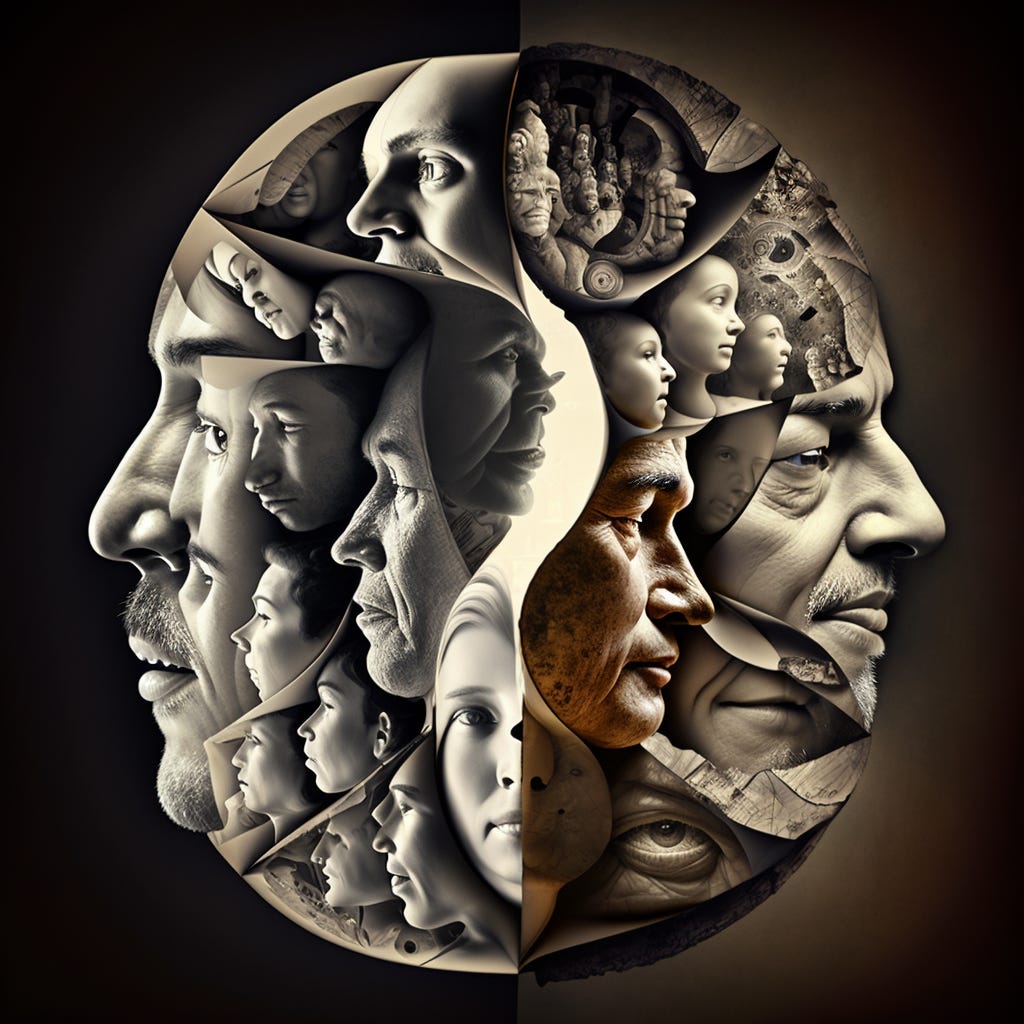Using Journaling as a Profound Introspection Tool
Leveling up the quality of your journaling
Journaling is an introspective process and it’s one in which which can use it to become aware of our blindspots.
Hanzi Freinacht wrote "The main obstacles to understanding these ideas are psychological ones: allergic emotional overreactions, prejudices, investments in beliefs, envy, fear, confusion and self-deceit.“ which helped me realize that journaling can be about more than just stream of consciousness rambling. It can be a tool to notice the perspectives we have the strongest allergies towards, our underlying assumptions of self, contacting our fears, noticing how the fear of death or the fear of social rejection drives so much of our decisions. It can literally be a tool for unpacking our psyche and re-building it from the ground up.
I beckon you to consider that journaling is more than just a teenage girl writing a dear diary about her crush. It can be a tool for everyone, in any walk of life, to gain greater self-awareness and to experiment with novel ways of relating to self in a safe, trusting environment.
Letting All Our Parts Speak
I don’t view journaling as becoming aware of the one true self, but rather as providing space to the hundreds of different parts of myself and changing my relationship to them. Thanks to the groundbreaking approach of internal family systems it’s now understood in modern psychology that who we are consists of multiple parts with their own agendas, desires, needs, fears, and sorrows.
We can really learn a lot about ourselves when we see that we’re not monistic beings with one goal, one motivation, one aspiration, one drive, one personality, but rather complex beings that exist in multiple different external and internal environments.
Through the act of journaling we can unpack the different selves that are active during the day that were journaling. With time we can even get at deeper and deeper parts of ourselves, the ones that are more fundamental and that are giving rise to many of the other parts. All of these parts are working in different context. We’re contextual beings. Who we are depends on the context that we’re in.
Playful Experimentation of New Identities
Journaling is this safe space where we can inhabit new identities and take new vantage points on our current identities. It’s a sandbox of the psyche. You can uncover that who you thought you were was just a story, or you can realize that you’ve been attached to a story that you thought was just the truth of reality.
Entire new worlds can be opened up to you. All through the simple act of writing whatever comes to mind and intending to notice any patterns in that writing.
The Importance of Pattern-Recognition in Journaling
It’s great to do stream of consciousness in journaling, but I’d argue that it’s doubly as powerful to add a layer of reflection onto whatever you wrote.
Maybe you sit down and write for 20 minutes about where you’re at in life and how you feel about various things in your life. The next step is to skim through what you wrote and see if you notice any patterns arising. If you read between the lines a little bit do you notice any fears speaking themselves through your words? Are there any desires that are trying to make themselves realized?
If you want to take it even another level further, try skimming through previous journal entries and comparing them to the more recent ones. Are there any patterns in the things that are frustrating you most in life? Are there any patterns in the dreams that are unrealized?
Introspection is a Process
Introspection isn’t some magical pill that you can grok overnight and understand the entirety of your psyche. It’s an ongoing process that takes decades. I’ve come to see that the love of the introspection process is one of the most important aspects of the development of wisdom.
There is no end goal. The process of becoming conscious of the multi-faceted layers of the psyche and to relate to them in novel, healthier and more supportive ways is a never-ending path.
How much can you learn to love the introspection process?
Aho.






